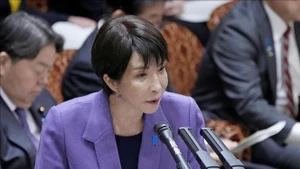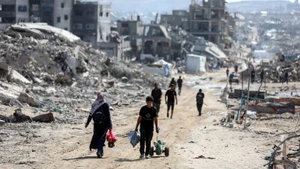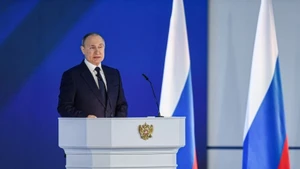Before entering 2024, many analysts chose the phrase “unpredictable changes” to forecast the world’s political landscape. This was a super year of elections with over 2 billion voters participating in about 60 elections worldwide to choose their leaders and governing political parties. The results of these numerous elections were expected to create breakthrough changes for many countries and the international order.
Notable among these was the US presidential election in November 2024, which has significant influence not only on America’s future but also on the rest of the world. The heat of the US election persisted throughout the year. Many countries even incorporated the US election results into their national policy planning. Donald Trump will return to the White House after what was considered a convincing victory, overcoming many campaign difficulties including an assassination attempt.
However, speculation about the upcoming policies of Trump 2.0 has stirred public opinion not only in America but also in many other countries, including US allies. His campaign speeches and post-election statements indicate that Trump will continue to pursue the “America First” agenda. Regarding trade, the upcoming US administration is predicted to implement highly protectionist policies, which are thought to potentially benefit America in the short term but damage US foreign relations, possibly reigniting trade disputes or even conflicts with partners.
Regarding foreign policy, President-elect Donald Trump’s administration will adjust its approach to hotspots, such as conflicts in Ukraine and the Middle East, toward reducing Washington’s intervention and promoting the role of US allies.
Meanwhile, for Europe, 2024 was a turbulent year, with the strong rise of far-right forces, along with turmoil in the EU’s two economic powerhouses, Germany and France.
While France saw its fourth prime minister within just one year, Germany is heading toward early elections in February 2025 following the collapse of Chancellor Olaf Scholz’s government. The shaking of the Franco-German axis has left the EU lacking decisive leadership to mount quick collective responses to crises. And it’s likely that with Europe in disarray, US President-elect Donald Trump will change his approach to the continent on defence and trade issues.
Still a global conflict hotspot in 2024, the Middle East witnessed several major turning points that made this region even more volatile. Israel and Iran openly launched direct attacks against each other; conflict in Syria unexpectedly resurged, leading to the collapse of President Bashar al-Assad’s government. Although opposition forces declared control, observers remain concerned that Syria will become a new flashpoint in a region already destabilised by clashes and confrontations.
Meanwhile, Asia was not immune to the political instability vortex. The Republic of Korea’s political scene was disrupted when both the president and acting president faced impeachment proceedings over responsibility related to the declaration of martial law. Tensions escalated again on the Korean Peninsula with military race developments pushing inter-Korean relations to a new low.
The world enters 2025 with anxiety, as the cycles of conflict, instability and political deadlock have not reached their conclusion. Current political developments in many countries and regions signal an increasingly complex global geopolitical environment. Geopolitical tensions are forecast to increase, especially in relation to technological competition, in the context that the global economy still faces many risks.
















